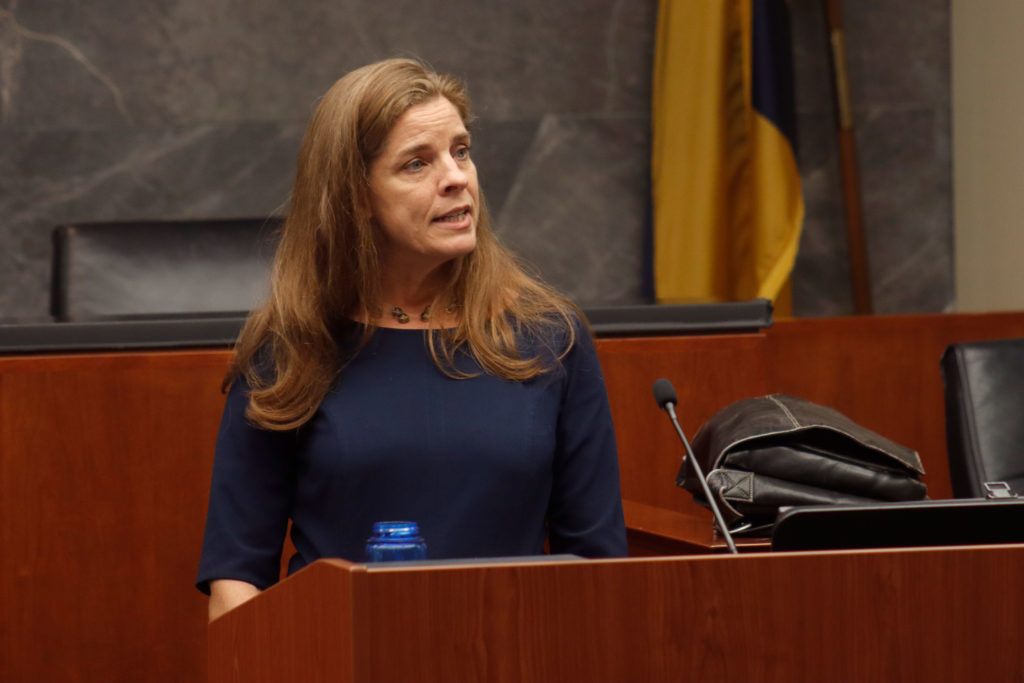A lawyer involved in the U.S. Department of Justice’s investigation into the Ferguson Police Department about five years ago discussed progress in police reform Tuesday.
Christy Lopez, the former deputy chief of the Special Litigation Section of the Justice Department’s Civil Rights Division, said at an event in the law school that “transformation” in police-community relations should follow recent progress, like increased use of body cameras, to protect citizens’ civil rights. Lopez also discussed her role in negotiating a settlement with Ferguson, Mo. police after an officer fatally shot a black teenager named Michael Brown.
Lopez, now a professor of law at Georgetown University, said the shooting in Ferguson half a decade ago was unsurprising because “the vulnerability of black lives in the criminal justice system” had already been “underscored” by instances like the acquittal of George Zimmerman after Zimmerman fatally shot Trayvon Martin, another black teenager, in 2012.
“These are just a few of the examples of death at the hands of the police that were the backbone for Ferguson, and the reason that I and many others were not surprised when we first heard that Michael Brown had been killed by the police,” Lopez said.
She said the incident in Ferguson was able to spark a broader conversation among Americans about police violence – a conversation that resulted in the genesis of movements like Black Lives Matter.
“A cloud was gathering in Ferguson,” Lopez said. “First a handful, then a few dozens and then hundreds. I began to see how big Ferguson was and as I watched unrest grow, I knew that Michael Brown’s death was part of something bigger.”
The Justice Department’s investigation into the Ferguson Police Department revealed a pattern of unconstitutional police actions, including detentions without reasonable suspicion, arrests without probable cause and the use of unreasonable force. The report also found widespread racial bias both in the police department and the municipal court system, which imposed harsh punishments for minor offenses leading to “crippling debts” and jail time.
Lopez said the Ferguson police refused to change their practices after the report exposed them, adding that outside pressure was crucial in enacting change. She said increased civilian input, greater diversity in the police force and a decrease in violent crime have helped reform the department but added that “police transformation” requires a greater effort still to improve the relationship between police and community members.
“This means doing more than making sure police are held accountable,” she said.
Following the report’s release, Ferguson City councilmembers approved a consent decree negotiated between city officials and the Justice Department, including Lopez. The decree, which the council unanimously approved a month after first rejecting it, overhauled the municipal court system and created police training guidelines geared toward de-escalation and avoiding force.
She said the complete transformation of Ferguson’s police force will require support from the general public, including students. She said the newfound awareness of police brutality toward unarmed black people could generate significant change in the future through public pressure for policy solutions to address the structural issues underlying police violence.
“The question isn’t ‘Did Ferguson make a difference?’” Lopez said. “The answer to that is clearly yes. The question rather is, ‘How do we do better going forward?’”





